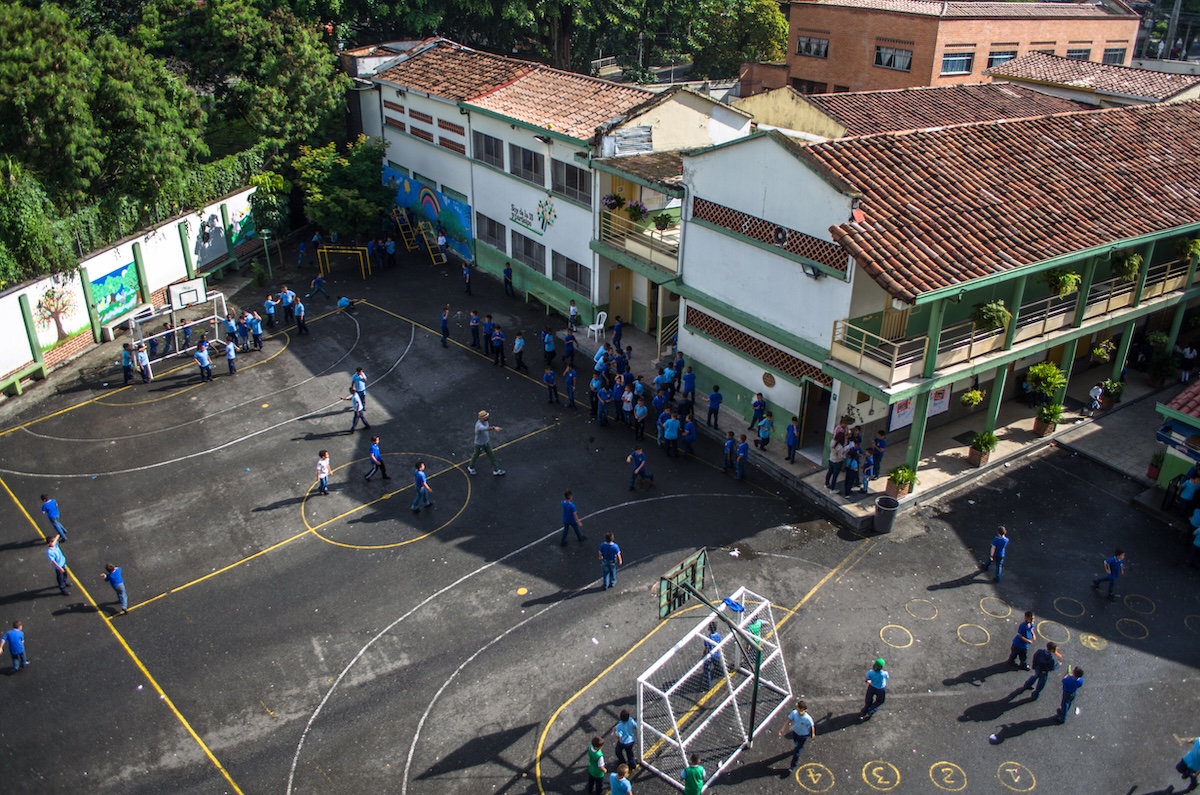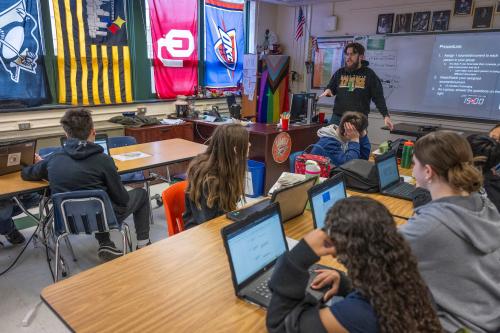The government of Colombia has recognized family, school, and community engagement as essential throughout a child’s entire educational trajectory and has therefore made family and school partnerships —known as Alianza Familia-Escuela—part of its efforts to foster the holistic development of children and adolescents. Colombia has enacted a series of national laws, decrees, and plans—or education frameworks—to make its program of Alianza Familia-Escuela central to its education system across all levels. As mandated by law and decree, there are several school-based mechanisms in place to ensure that families are involved in decision-making and leadership. One of the most notable mechanisms is the Escuela de Padres y Madres de Familia y Cuidadores (Family Education Program) (referred to herein as “Escuela de Padres”). Despite Colombia’s ambitious policy priorities—a notable effort in Latin America—there are numerous challenges in bringing this vision of family engagement to fruition in practice.
This policy report explores how to transform Alianza Familia-Escuela into impactful partnerships in Colombia’s schools. The purpose is to guide decision makers, education leaders, and civil society organizations in effectively implementing Alianza Familia-Escuela across the education ecosystem and to ensure that families are meaningfully partnering with schools and communities to support student learning, development, and well-being.
As the research in this policy report indicates, national commitments to Alianza Famlia-Escuela have not yet been fully operationalized as intended in schools, and not all families are engaging in their children’s schools as aspired. Most notably, families who do not have flexible and secure work and rely on daily wages struggle to engage in the same way as families that have more economic and social stability. Families are also contending with issues in their communities such as poverty, violence, and migration, challenges which were noted by education leaders at all levels, as well as teachers, parents/caregivers and students. Schools that struggle with safety and that serve vulnerable communities, as well, face notable challenges in forming trusting relationships with families. These challenges complicate efforts for schools to reach and engage with families and for families to see schools as places that are accessible, supportive, and safe. More needs to be done at the national, departmental, and school levels to ensure that education leaders, schools, and families work together to support learning outcomes, school completion, and student well-being. This policy report presents key findings and recommendations for building family, school, and community partnerships in Colombia. The research featured in this policy report was conducted in 13 departments and 66 public and private secondary schools during 2023. The research was led by Red PaPaz, a civil society organization (CSO) and network of parents, and Alianza Educativa, a network of secondary schools, in collaboration with the Center for Universal Education (CUE) at the Brookings Institution.
This policy report begins with an analysis of how family, school, and community engagement, as well as the roles of families, are envisioned in Colombia’s national education frameworks, as well as the school-based mechanisms for implementing Alianza Familia-Escuela. The methodology used for this research—the Conversation Starter Tools—is then introduced, followed by an overview of the research context and the demographics of the participants. Finally, five key findings from the quantitative and qualitative data are presented, along with practical recommendations and strategies for implementing these recommendations at the national, departmental, and school levels of Colombia’s education ecosystem. The strategies emerge from examples in Colombia and beyond. These recommendations focus on secondary education but are also relevant to early childhood and primary school.
-
Acknowledgements and disclosures
The Brookings Institution is a nonprofit organization devoted to independent research and policy solutions. Its mission is to conduct high-quality, independent research and based on that research, to provide innovative, practical recommendations for policymakers and the public. The conclusions and recommendations of any Brookings publication are solely those of its author(s), and do not reflect the views or policies of the Institution, its management, its other scholars, or the funders acknowledged below.
Brookings gratefully acknowledges the support of Imaginable Futures and the LEGO Foundation.
Brookings recognizes that the value it provides is in its absolute commitment to quality, independence, and impact. Activities supported by its donors reflect this commitment.
The Brookings Institution is committed to quality, independence, and impact.
We are supported by a diverse array of funders. In line with our values and policies, each Brookings publication represents the sole views of its author(s).






